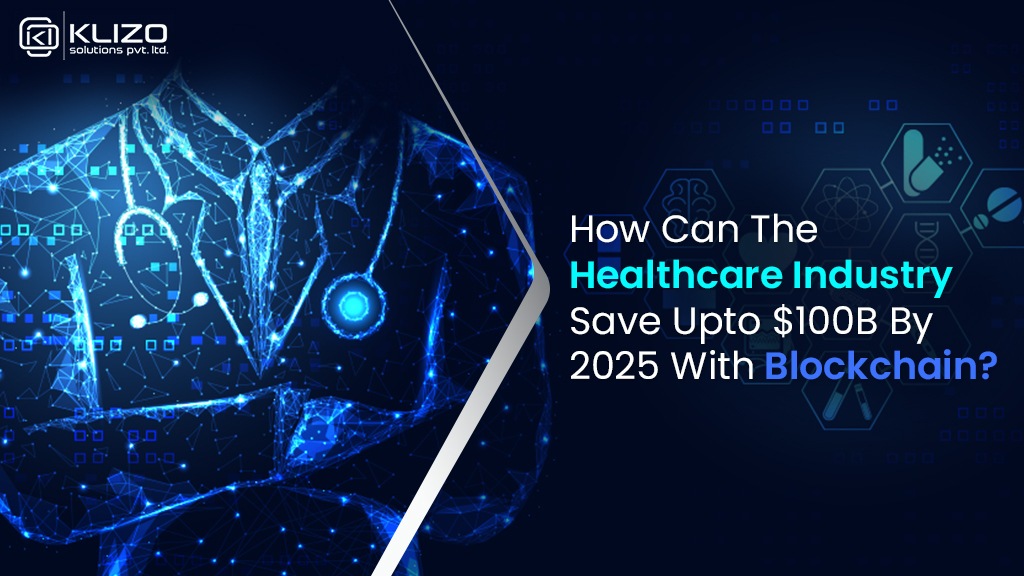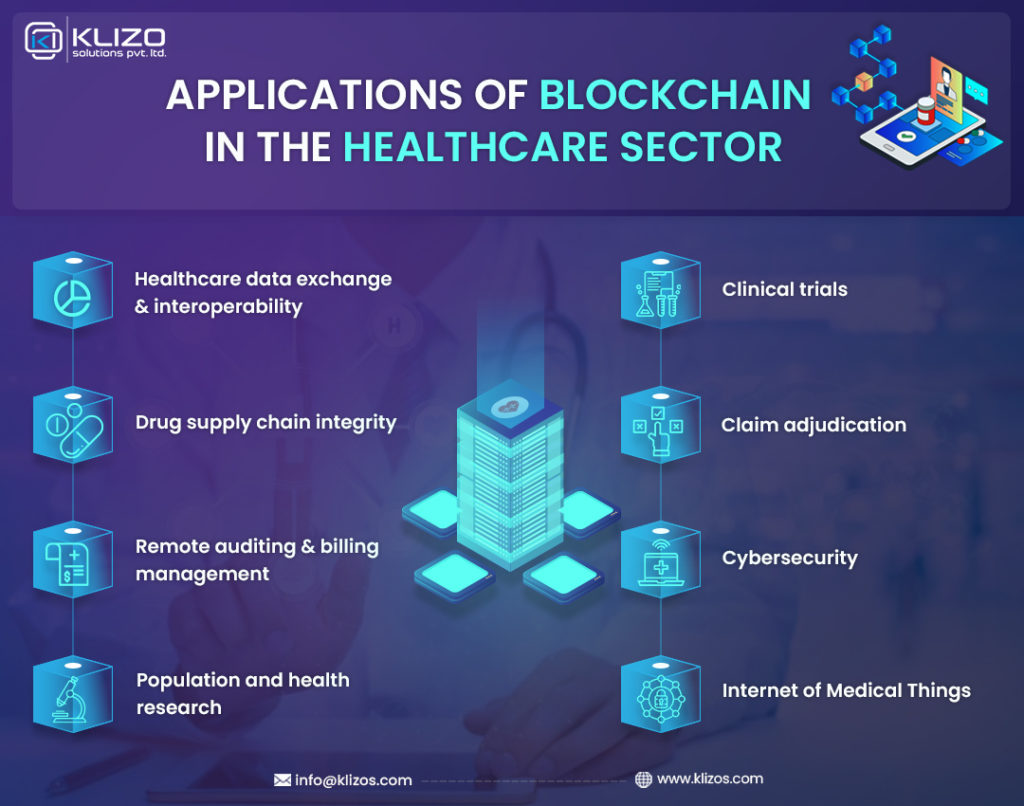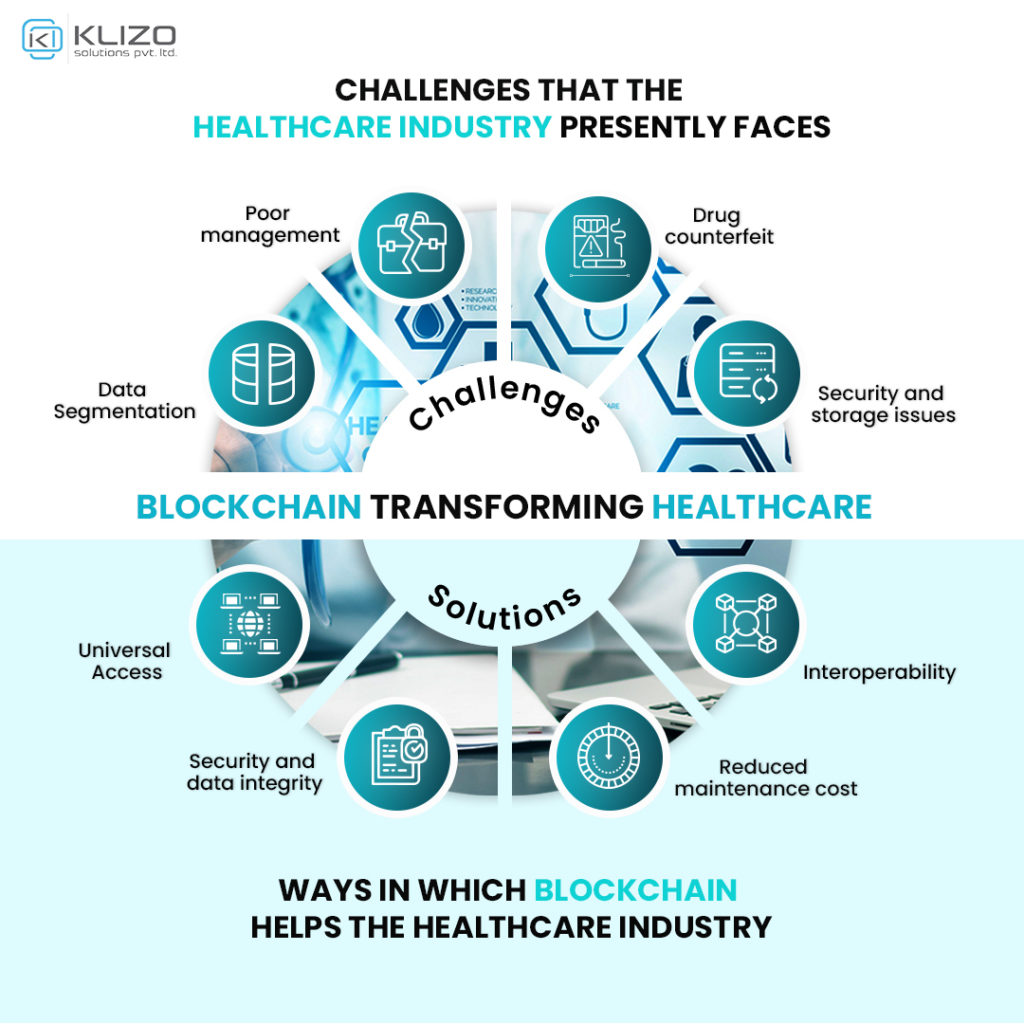


Do you know that blockchain in healthcare can help the healthcare industry save up to $100 billion by 2025, if not more??? Well, it is no joke cause we are about to find out all about it here in this article!
The healthcare industry is one of the busiest sectors, and every individual working in this industry carries out multiple responsibilities. It is one such industry that undergoes constant development, needing advanced technologies at every step. And that is where blockchain comes in as an advanced technology to improve the processes and a new hope for saving a lot!
All information stored and shared must be accurate to the core as healthcare does not allow room for mistakes. One minor error can lead to a blunder that might or might not cost one’s life, along with unimaginable financial forfeiture. So you see, delivering quality and efficient healthcare services is highly dependent on the progression of technology and the capability to maintain and store records.
And it is here that the use of blockchain in healthcare helps overcome these frailties and strengthen the legacy of healthcare.
Let us go through the concept of blockchain once before we discuss the cost-saving features of blockchain technology in healthcare.
Blockchain technology has been on the block for quite a while but did not get the attention it deserved until bitcoin became a blockbuster. But people are now slowly understanding the concept of blockchain and its many benefits.

Especially in the healthcare sector, it is a blessing as it can help with their daily tasks. The main thing about blockchain in healthcare and health sciences is that it is a decentralized network, which helps to grab new opportunities at the earliest. It also provides a very advanced healthcare information security system with a transparent work system.
Progressing over the years, the healthcare industry has become more efficient than ever. However, some areas still need improvement as most of the departments are relying on outdated methods. Especially, sustaining healthcare data and records has become a complicated task, making the entire operation a very hectic process.
At this moment, the healthcare industry needs to improve its operation and security system urgently. As per reports, the healthcare industry will grow to a whopping $5.61 billion in 2025. So, here is how blockchain can help reduce healthcare costs and improve productivity.
According to a report, 80% of the time and cost physicians invest in credentialing can be saved by implementing blockchain in healthcare.
Documents that need to be attested by a physician need to be forwarded to other organizations for verification. This process is not only time-consuming but quite expensive as well. So those still wondering about how blockchain works in healthcare know that with the help of blockchain, the required departments/ organizations can have immediate access to the documents encrypted by the physicians.
The physician in charge can also conduct changes to the network in the credentials, which can be authenticated by members who know the private key and the algorithms. Other than these, healthcare centers can be provided with access codes to view these credentials.
Paying attention to data analytics has become essential these days. It helps in better judgment and planning, which ultimately leads to efficiency in work productivity.
In healthcare, one can take advantage of analytics to improve hiring procedures. Well, these insights can help you segregate the most deserving candidates by authenticating their qualifications and resumes, which eliminates the expense of hiring the wrong entrant. And it is one of the other examples of how blockchain is used in healthcare for cost reduction!

Did you know that a report in Forbes suggested that the United States was spending nearly 20% of its GDP on healthcare? Well, this report was from 2018. And with the incorporation of blockchain technology, it saw a significant downfall leading it to come down almost 17.7% last year. More studies have found that if we continue using blockchain in healthcare, then it will help to save as much as $100B annually by the end of 2025.
Blockchain technology applications straightaway block any middlemen or third-party transactions. It only enables direct transactions between the two parties. Thus, any charges involved in third-party transactions get eliminated. Hell, it does not even let banks interrupt the process without consent. So, no extra costs!
When it comes to blockchain in healthcare data safety and privacy, this technology provides a very high degree of security and protection to the user data, making it almost impossible to breach or hack.
With the advancement of technology, the chances of getting a ransomware attack have increased as the hackers can demand a ton of money for the encryption key. However, blockchain is a decentralized network that allows the data to be stored in separate systems instead of in a cohesive arrangement. And this automatically increases healthcare data security and makes it impossible to hack.
Now that you know what is blockchain in healthcare and how it can help save big, don’t you think it is time for you to implement this technology? Integrating blockchain sooner can save the healthcare industry from investing huge amounts of money and focus on increasing productivity.
There are already plenty of examples of blockchain applications in the healthcare industry! The more you delay adopting this technology in your business, the further you will get from achieving success in your domain.
If you are interested in incorporating blockchain into your business or building a blockchain app, get in touch with us now! We have a team of skilled and expert developers who will do their best to meet your requirements!
Joey Ricard
Klizo Solutions was founded by Joseph Ricard, a serial entrepreneur from America who has spent over ten years working in India, developing innovative tech solutions, building good teams, and admirable processes. And today, he has a team of over 50 super-talented people with him and various high-level technologies developed in multiple frameworks to his credit.

Subscribe to our newsletter to get the latest tech updates.